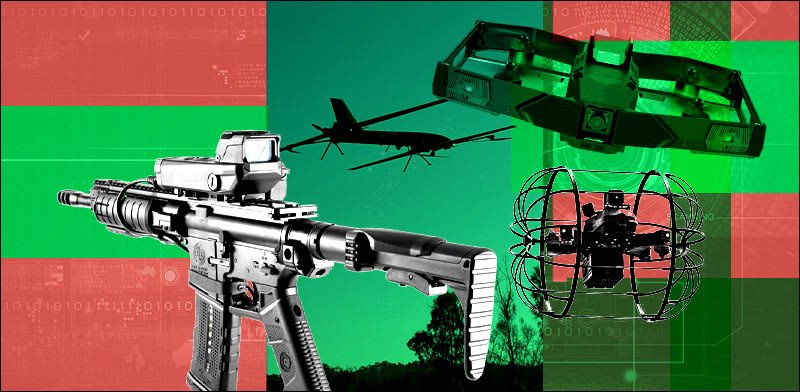In an unprecedented shift during the ongoing conflict period stretching from October 2023 to September 2024, Israel’s Ministry of Defense has catapulted its investments in innovation, directing a staggering NIS 601 million toward 86 startups and burgeoning enterprises. This figure, a remarkable quintuple increase compared to the previous year, has been unveiled through exclusive insights from the Ministry of Defense’s Directorate for Research and Development (MAFAT).
This wartime surge in procurement marks a departure from traditional practices. This time, the strategy encompasses not only monumental contracts with major defense corporations but also a concerted effort to integrate the agile creativity of startups. With Gen. (res.) Eyal Zamir at the helm of the Ministry of Defense and Brig. Gen (res.) Dr. Danny Gold steering MAFAT, these collaborations are set to reach a crescendo at the forthcoming Defense Tech Summit, hosted by Tel Aviv University’s Blavatnik Interdisciplinary Cyber Research Center in conjunction with MAFAT.
By the end of September 2024, MAFAT had engaged with a total of 284 startups, having directly collaborated with 200 and reached out to another 84 via external avenues—a growth of 38 entities since the dawn of 2024. Notably, in the third quarter alone, MAFAT finalized contracts with a staggering worth of NIS 134 million. A noteworthy complexity arises as government-to-government (GTG) agreements reveal a mosaic of involvement that is not merely confined to heavyweight firms. Since the year commenced, MAFAT has forged partnerships with 13 startups and small companies, culminating in contracts worth NIS 74.5 million with foreign nations, predominantly the United States. This array of advanced contracts is perceived as pivotal in propelling the technological frontier of the Israel Defense Forces (IDF).
Analyzing the patterns of procurement since January 2024, it becomes evident that 37% of contracts were awarded to pre-seed startups, 25% to those in their A-rounds, with 19% classified as post-Series C enterprises. In sharp contrast, when examining firms with direct affiliations to MAFAT, the data reveals a staggering 64% of these companies have advanced beyond the pre-seed or seed stages, while 16% stand at the precipice of Series A rounds. Remarkably, the turbulence of war has catalyzed over 20 startups to transition from developmental phases into production, including notable names like Third Eye, Regulus, Robotican, Smartshooter, and NextDim. Dedicating analysis to the sectors in focus during the conflict underscores a primary demand: a striking 55% of orders were aimed at autonomous platforms.
“Essential Agility for Conflict”
In a parallel initiative, the Ministry of Defense is nurturing nascent enterprises through the INNOFENSE accelerator program, having completed four cohorts comprising 58 startups, each delving into realms such as artificial intelligence, navigation, and deep-tech. Impressively, 58% of these initiatives reached conclusion after validating their proof of concept (POC). Out of this dynamic group, five have successfully secured contracts amid the conflict: Alumor, Xmetix, NextDim, Convex, and Nisaba. The global defense sector is progressively leaning toward dual-purpose applications—serving both military and civilian needs. In light of this, MAFAT has cemented non-binding framework agreements with three venture capital entities: AWZ, Chartered Group, and Dual Impact. To date, these funds have channeled approximately NIS 264 million into 15 companies, five of which are directly linked to MAFAT: Xtend, DeepKeep, Xrodes, Viisight, and Corsound.
Moreover, the Meimad program, a collaborative effort between MAFAT and the Israel Innovation Authority, has been a vital indirect conduit for innovation—operating continuously for the past dozen years, providing grants for companies showcasing innovative dual-use technologies. Out of 73 recorded startups benefiting from this program, an impressive 41 have manifested orders and supplies sanctioned by MAFAT. Collectively, these enterprises have attracted around NIS 1.3 billion in funding, with Quantum Source securing an astounding NIS 273 million.
Colonel Nir Weingold, at the helm of the IDF Planning, Economics, and Systems Analysis Department, remarked on the inherent advantages of smaller companies, stating, “Due to their size, they streamline paperwork processes, circumventing the lengthy approvals typical of larger organizations.” He elucidates that agility and an urgent drive to secure contracts, drive funding, and establish stability are paramount during wartime.
Col. Weingold expresses an optimistic outlook on innovation trends, seeing the upcoming conference as a pivotal milestone in Israel’s defense innovation landscape. “The opening day will focus on technological impacts on the battlefield, while the second will spotlight innovation and investment,” he notes. “This division aims to underscore the tangible progress achieved, highlighting startups as force multipliers that strengthen our defense capabilities, powered by the synergy of academia and startups propelled by venture funds.”

